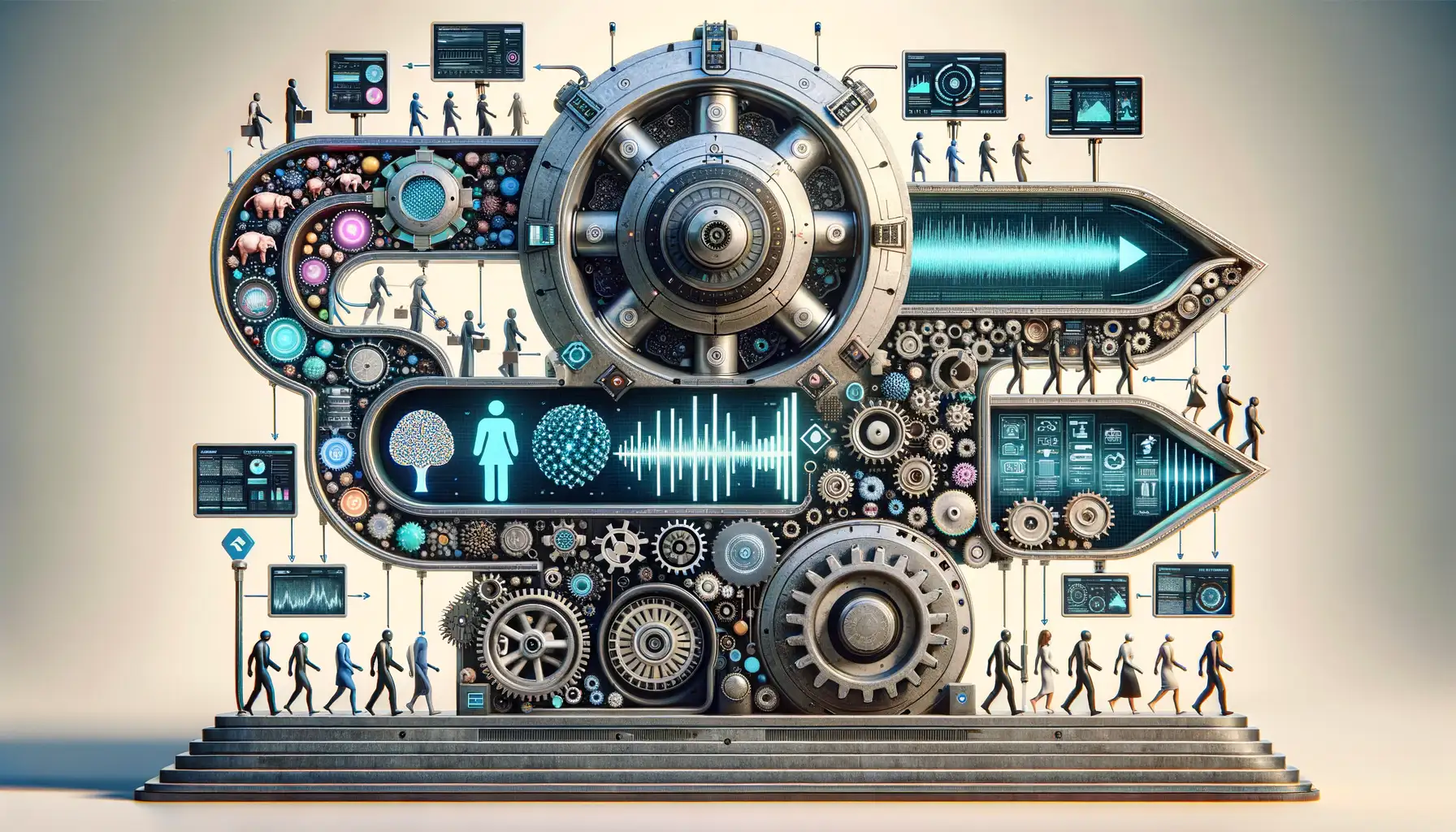The Advancements in Wearable Health Technology
How Wearables Are Changing Lives, One Sensor at a Time
Imagine this: tiny devices wrapped around your wrist, woven into your clothes, or even clipped to your running shoes. These aren’t just stylish accessories; they’re revolutionizing the way we understand and care for our bodies. With advancements in wearable health technology, it’s like having a personal health assistant that never sleeps. How cool is that?
Thanks to cutting-edge sensors and algorithms, wearables can now monitor things *we couldn’t have dreamed of a decade ago*. Beyond basic step counts and heartbeats, today’s devices track:
- Blood oxygen levels with the precision of a mini-lab.
- Stress and mood through sweat sensors and skin temperature.
- Irrregular heart rhythms, alerting users (and sometimes their doctors!) in real-time.
And it doesn’t stop there. Some devices are equipped to predict migraines before they strike or remind you about hydration when you’re too busy to notice. It’s almost like wearables are tapping into that sixth sense we didn’t know we needed.
The Secret to Personalized Health in Real-Time
What truly sets modern wearables apart is their ability to adapt to *you*. They collect data unique to your body—your movements, your rhythms, and quirks—and transform it into actionable insights. For instance, the latest sleep trackers don’t just tell you how many hours you slept; they analyze your REM cycles and suggest bedtime routines for better rest.
Wearable tech has grown smarter, smaller, and more intuitive with every passing year. The real magic? It’s not just about the technology—it’s about the *connection*. These devices offer a sense of control, giving you front-row access to your health journey like never before. Who wouldn’t want that?
How Wearables Are Revolutionizing Health Monitoring
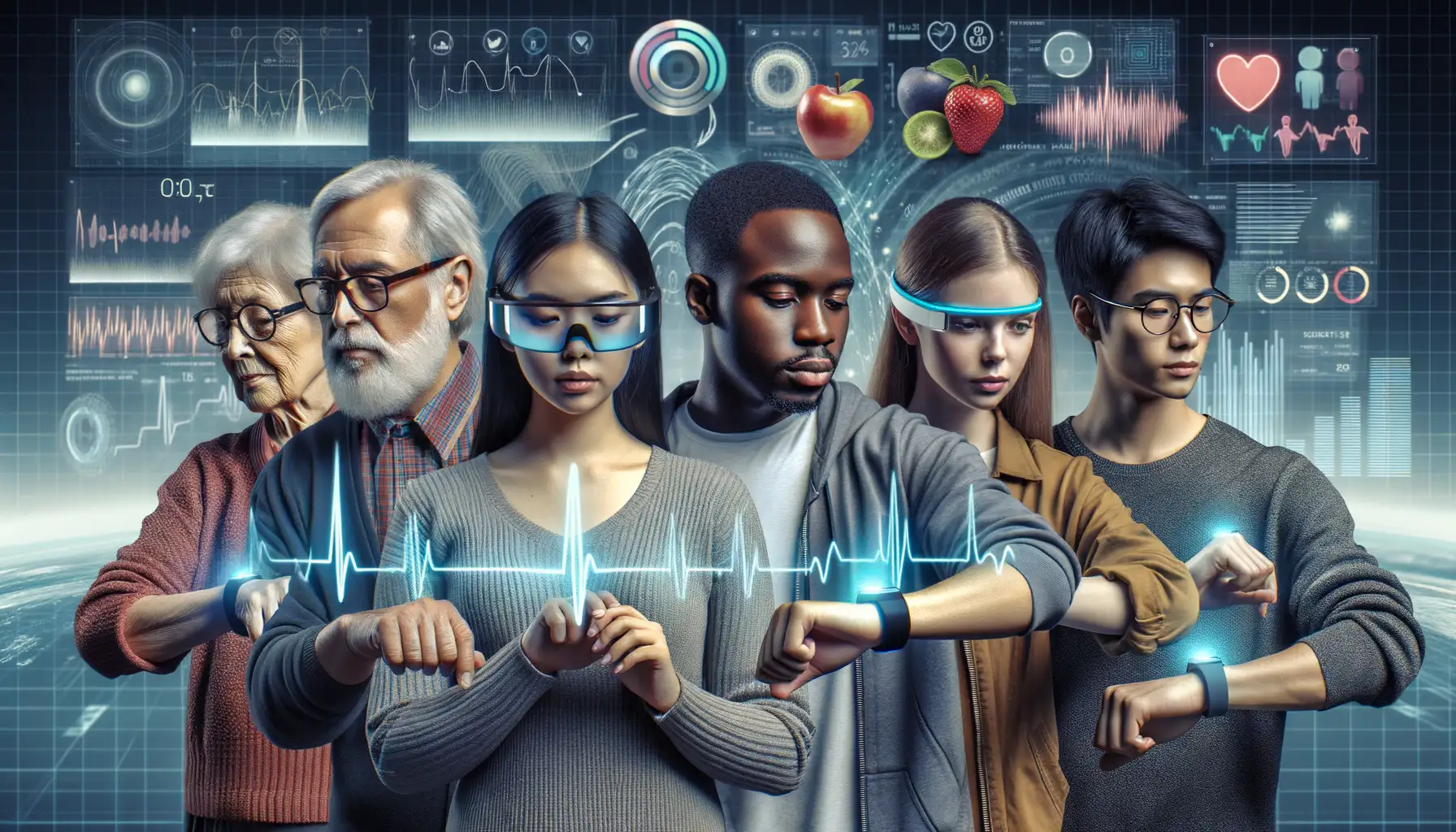
Changing the Way We Listen to Our Bodies
Imagine waking up in the morning and your wearable device has already analyzed your sleep, measured your heart rate, and nudged you toward better hydration—all before you’ve even had coffee. This isn’t science fiction; it’s the reality of how wearables are transforming health monitoring. These clever gadgets don’t just collect data—they translate it into powerful insights about *you*.
Gone are the days when checking your well-being meant waiting for an annual doctor’s visit. Wearables like the Apple Watch and Fitbit now let you monitor your body 24/7. Feeling off? A quick glance at your wrist might reveal elevated blood pressure or abnormal heart rhythms. It’s like having a mini health assistant strapped to you!
- Track stress levels using skin temperature sensors.
- Detect early signs of conditions like atrial fibrillation with advanced ECG features.
- Even measure blood oxygen levels—the pulse oximeter is no longer limited to hospital walls!
Health Data That Feels Personal
What sets wearables apart? Their ability to make health data feel deeply personal. When your fitness tracker buzzes to signal your daily step goal, it’s not shouting generic advice—it’s tailored *just for you.* Feeling motivated yet? That’s the magic of personalized insights: they inspire action. These tiny tech marvels are putting the power back into your hands—literally.
Innovative Applications of Wearable Devices in Healthcare
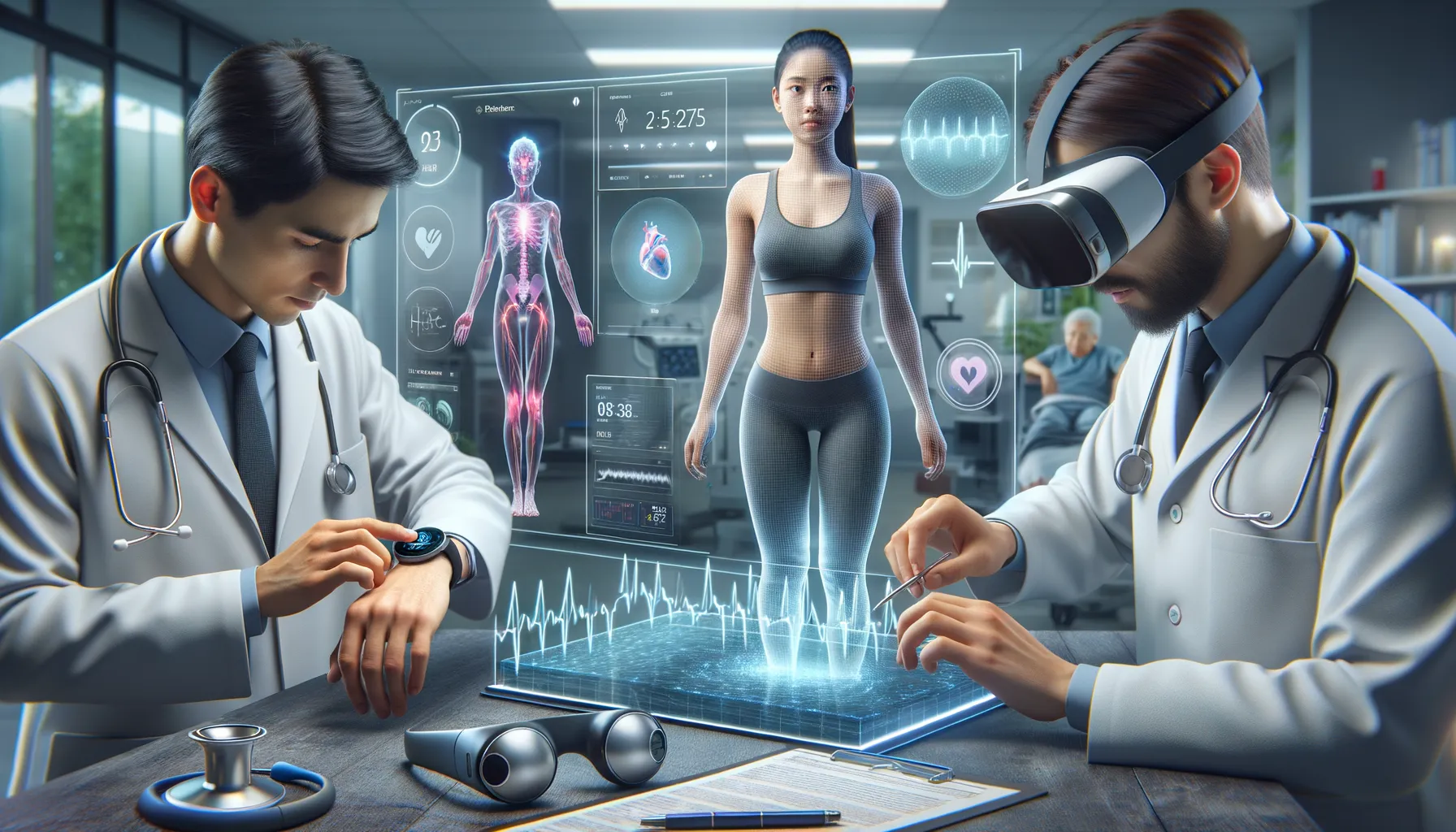
The Transformative Role of Wearables in Chronic Disease Management
Imagine a world where your watch isn’t just tracking your steps — it’s actively helping control your diabetes or keeping tabs on your heart health. That world is here, and it’s nothing short of revolutionary. With wearable devices like glucose monitors and advanced cardiac trackers, managing chronic illnesses has become less about invasive tests and more about real-time insights.
For example, people living with diabetes can now rely on Continuous Glucose Monitors (CGMs) that send alerts when blood sugar levels spike or drop. A simple vibration on your wrist might save you from a sugar crash during an important meeting. Similarly, wearable ECGs are catching irregular heartbeats — even those silent, sneaky ones — before they spiral into something serious.
Using Wearables for Mental Health Tracking
Yes, wearables can even peek into the mysterious realm of our mental well-being! How? Devices now monitor stress levels, track sleep cycles, and gauge mood changes by analyzing bio-signals like heart rate variability and skin temperature. Imagine your smartwatch giving you a gentle nudge when it senses prolonged stress—your personal mindfulness coach on your wrist. It’s like having a friend whispering, “Hey, breathe. You need this.”
The Impact of Wearables on Preventative Health
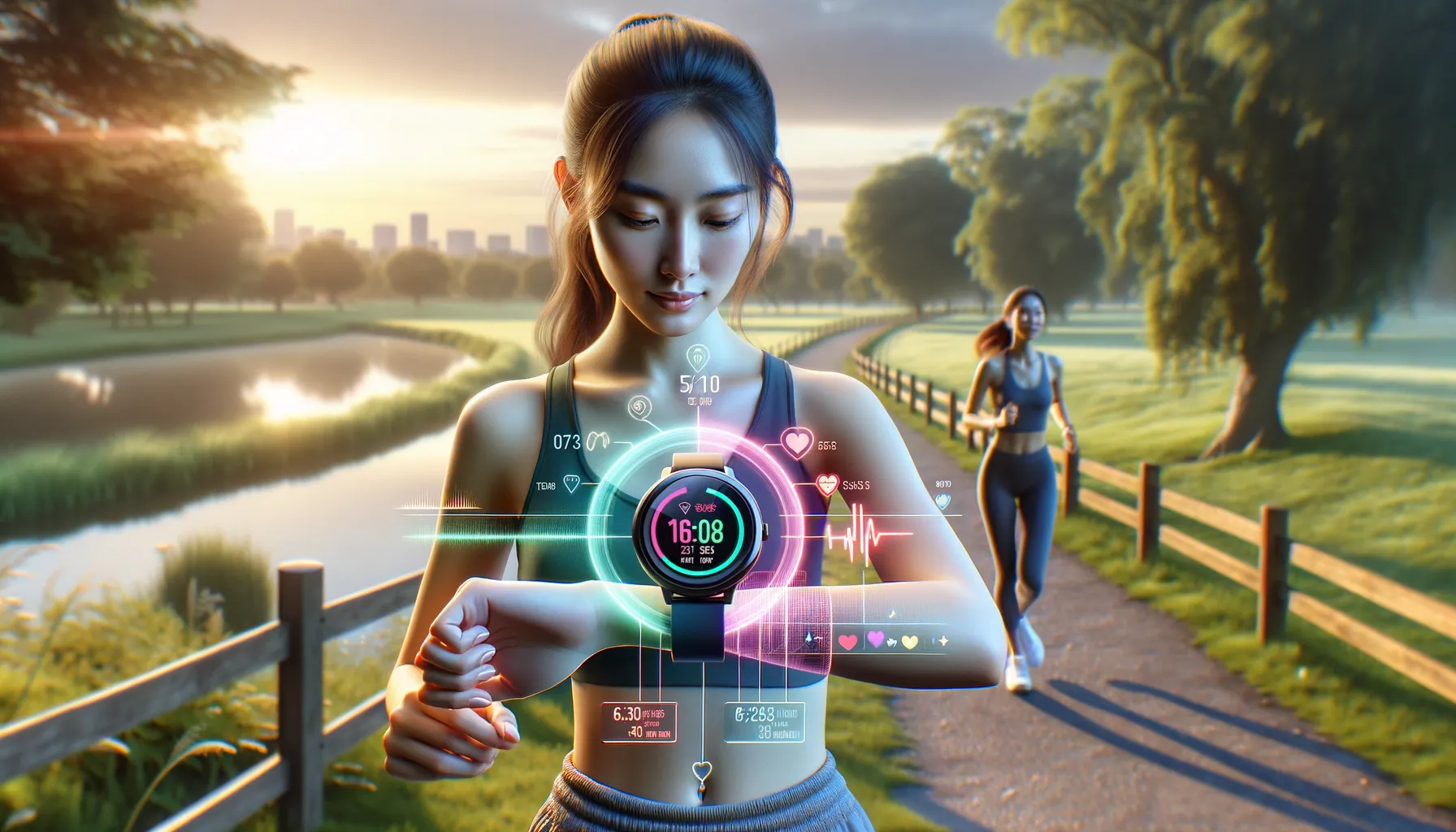
Revolutionizing Healthy Habits with Wearables
Imagine having a personal health coach strapped right to your wrist, whispering timely nudges like “Get up and stretch!” or “Maybe skip that third coffee today?” That’s the magic of wearables. These sleek, tech-packed devices have completely changed the way we approach prevention—turning reactive healthcare into proactive, everyday practices.
Take heart rate monitors, for instance. They don’t just track your pulse—they alert you if something seems off, like an irregular pattern you might not feel yourself. Or what about those sleep trackers that dig into how long and how well you’re resting? A poor night’s sleep isn’t just about feeling groggy; it can predict bigger problems like stress or even heart disease.
- Smartwatches flag potential issues before symptoms occur, such as drops in oxygen levels.
- Fitness trackers fight sedentary habits by gamifying movement—it’s like a gentle drill sergeant on your wrist.
These devices also build awareness. Knowing your numbers means spotting patterns and making micro-adjustments before concerns snowball. Wearables aren’t just gadgets—they’re lifelines inviting us to be more in tune with our bodies every single day.
Future Trends in Wearable Health Technology
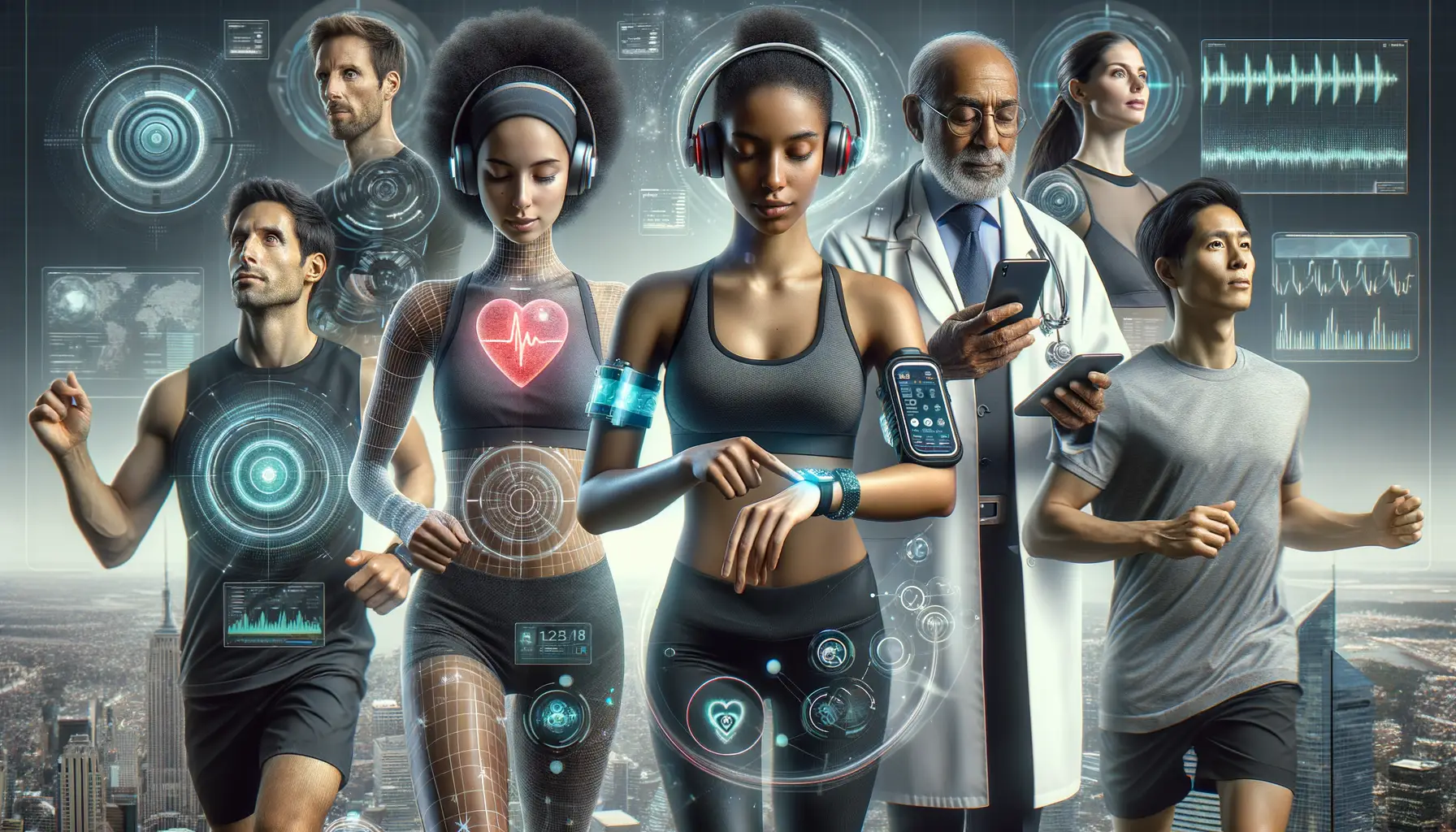
The Next Frontier: Smarter, Smaller, More Intuitive
Picture this: a sleek ring on your finger that silently analyzes your stress levels while you’re stuck in traffic or a tiny patch on your arm that monitors hydration and alerts you to drink water before dehydration creeps in. The future of wearable health technology isn’t just about making gadgets smaller—it’s about making them *smarter* and more attuned to your body’s unique rhythms.
Expect wearables that don’t just track but *predict*. Imagine AI-powered devices that intuitively warn you of a potential heart irregularity days before it becomes a serious concern. And for those tired of bulky designs? Innovations like bio-integrated tattoos and fabric-embedded sensors are already redefining “wearable.”
- Non-invasive glucose monitoring: No needles, no discomfort—just seamless blood sugar tracking for people with diabetes.
- Neurofeedback devices: Helping you literally “train your brain,” combating mental fatigue, anxiety, and even insomnia.
Hyper-Personalized Health Companions
Wearables of tomorrow will be less like tools and more like companions. These devices will adapt in real-time, learning your habits, preferences, and even your mood. For instance, your smartwatch might suggest meditation after noticing elevated cortisol levels all morning—a friend who knows you better than you know yourself!









